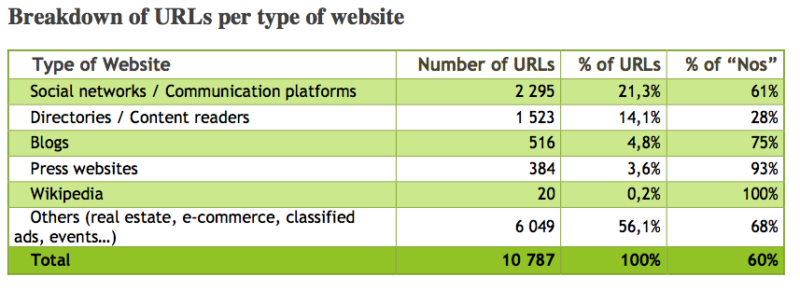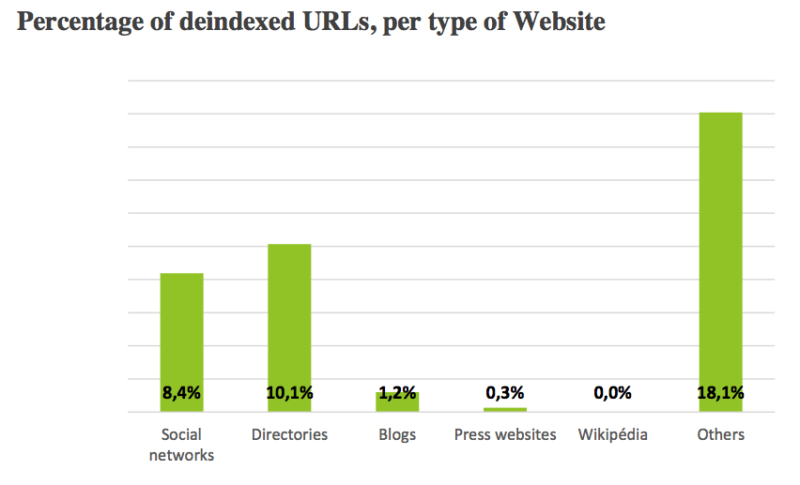Study: 60 Percent of “Right To Be Forgotten” Requests Denied
Reputation VIP operates the Forget.me website intended to handle Google and Bing “Right to Be Forgotten” (RTBF) requests. Using three months of data, the company has released a study on RTBF’s impact in France, the UK and Germany. There was a smaller, separate study on Spain. It found that overall 60 percent of requests are […]
Reputation VIP operates the Forget.me website intended to handle Google and Bing “Right to Be Forgotten” (RTBF) requests. Using three months of data, the company has released a study on RTBF’s impact in France, the UK and Germany. There was a smaller, separate study on Spain.
It found that overall 60 percent of requests are being denied. But on the flip side that means 40 percent are being granted.
The company looked at the impact of requests on several categories of websites: media/press sites, Wikipedia, directories, social networks and blogs. I’m not going to discuss all the results but will point out a few findings from the study.
Reputation VIP found that most of the requests were concentrated in a few categories. The largest category of requests (56 percent) comes from “other,” which is an amalgam of sites. After that, however, social networks and directories were the site categories with the most RTBF requests. Together those latter two categories represent nearly 36 percent of overall RTBF requests in the countries examined.
In the social networks category (i.e., Facebook, Google sites, Twitter and LinkedIn), 61 percent of requests were denied. And 100 percent of Wikipedia-related requests were denied. However this latter finding was directly contradicted by the Wikimedia Foundation, which previously said that 50 links to its Wikipedia site have been removed from Google search results in Europe.
The chart above shows where successful RTBF requests and de-indexing are concentrated among the various site categories. Other than Wikipedia, relatively few links were de-indexed in the press/media category or tied to blogs.
Below is a representative indication of the percentage of those URLs from press sites impacted by successful RTBF requests.
Perhaps most interesting is the ranking of links that are the focus of RTBF requests. According to Reputation VIP, “two-thirds of the URLs mentioned in a [RTBF] request are on the first three Google search result pages.”
Indeed it’s this visibility that’s likely driving the requests in the first place, although a full 25 percent of requests concern links that appear “lower” than the third page of search results.
A new court decision in Japan implicates and may suggest the emergence of a similar “right to be forgotten” in that country when indexed results are determined to “infringe personal rights.”
Opinions expressed in this article are those of the guest author and not necessarily Search Engine Land. Staff authors are listed here.
Related stories
New on Search Engine Land




